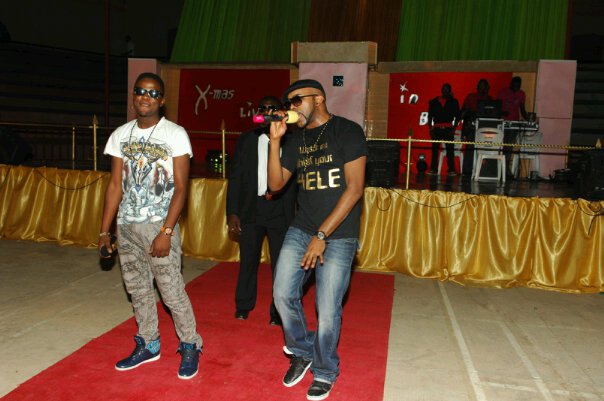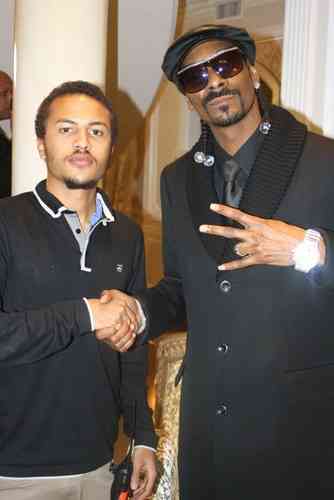Wale Thompson, who started off as a guitarist with his father’s band, Popular Jingo and His Royal Dance Band in Ijebu-Igbo, is no doubt, a success story in the Nigerian music industry. But a ghastly auto crash almost ruined his career few years back after releasing his second album. In this interview with Reporter, Wale Onifade, the juju musician spoke about how he survived the accident, the state of his career after the accident and his upcoming album No Rival.
After ‘La la le Friday’ you seem to have run out of steam with commercial songs. Why have we not gotten any hit song from you all this while?
First of all, I’d like to give thanks to God for everything. After ‘La la le Friday’, I released another album entitled My Logo and a month after the release of the collection, I had an accident. Two people died in the accident and I sustained head injuries. Because of that, we couldn’t promote the album and I had to travel abroad for treatment. When I returned from that trip, another album entitled Play On was released and I think that album did well too. After Play On, I travelled abroad for two years, though I was shuttling between London, Nigeria and America. I have been back since 2007 and I’m currently working on another album, which will be released soon. Personally, I believe it is God that promotes and in the industry we are in today what you just need is for a promoter to believe in you. Once you get that, then your career will blossom. If your album is not well promoted, then you can never have a hit song. I couldn’t promote Play On the way I would have wanted because of the accident I had and I know that album would have been a hit. I’m the type of person that doesn’t believe in rushing to the studio, I believe in perfecting my work before bringing it out for public consumption.
How did you recover from the tragedy that followed the release of your album My Logo?
I must be really sincere to you, a lot of people thought I was dead when they got news about the accident. There was a live concert held after the accident and immediately after the concert, another person died and funny enough his name was Justice Adewale Thompson. That occurrence further fuelled the rumour that I was dead too, a posthumous award was also given to me while I was still alive.
Aside from that, I travelled abroad to take care of myself and I also went with my band members for five months. When I recovered, I started playing at big shows in London and later came back. Talking about the negative effect of the accident in my career, I was performing everyday of the week before the accident. Honestly speaking, the accident affected my career and it is one experience I won’t forget in a long time.
Do you have any regrets being a musician?
Not at all; my father happens to be a musician and I took after him. I have never had any regret being a musician. I believe it is a talent that has been invested in me by God and I am glad to be doing what I love and that is music.
Hip hop seems to have taken over the scene in recent times while relegating other local genres of music such as Juju and Fuji music to the background. How do you cope as a practitioner of both genre of music?
Before hip-hop became what it is today, I have been playing juju music. I started very early; my band started performing in 1988 and the band was officially launched on October 1, 1989. I have won over a lot of fans ever since and each time I perform my main objective is to play good music. And after performing I usually have one or two people coming over to engage us for their own shows. The song, ‘La la le Friday’ still rings a bell in the ears of many till date.
But hip-hop has overshadowed juju music in Nigeria
I don’t believe in that but what I know is that hip-hop is being given more recognition and publicity than juju music here and exactly what I’m doing right now is to bridge the gap and I hope all other juju musicians will follow suit. The most important thing is that no matter how good your music is, if you don’t give it a proper publicity, you will just be doing music for your family and household consumption only.
I performed in clubs everyday of the week; there were times where I played in London today and the next day I was in America for another show. Right now, I’m back in the country full time, I only travel abroad to perform and come back.
What do you think can be done to further promote Juju, Fuji and other local genres of music?
The only thing that can be done now is for these genres of music to get more airplay and promotion. It may be the turn of hip-hop today and tomorrow it may be the turn of another genre of music. If you ask me, hip-hop is not our thing and I am not saying it is bad to promote hip-hop but we should endeavour to promote our local songs. When you go to countries such as Cameroon and other francophone countries what they promote mostly is Makossa and Soukous. No American can come to Nigeria and sing juju music better than Wale Thompson. We should take pride in celebrating and supporting our own. But don’t forget that my songs also have an infusion of hip-hop with ‘La la le Friday’ featuring Eedris Abdulkareem. There was also ‘Bamidupe’, which is also a hip-hop song. In my last album entitled Play On I featured two hip-hop acts such as Ruggedman and Sasha. There is also another song in my last album that features Azadus.
What new innovations are you bringing into the new album that is not in the previous ones?
I used to have nothing less than six tracks on my previous album but right now, we have eight tracks filled with traditional, contemporary Juju music, gospel and all other genre of music are all enveloped in the new album. The difference between my last album and the upcoming one is very different because when you are working with someone like Uncle Laolu Akins as your producer, he won’t want you to repeat yourself over and over again. He wants something new from you all the time. And you can’t also compare what I sang six years ago with what I’m about to release to the market now. Now, I have more knowledge and more experience musically.
How do you describe your type of juju music?
I don’t believe Wale Thompson is playing the same music with other juju artiste that we all know out there; we all perform different kinds of juju music. If you listen to King Sunny Ade his style is quite different from Chief Ebenezer Obey Commander and Sir Shina Peters, which his type of music is also different from other juju artistes. But when you talk about Wale Thompson, my own type of music is called Juju hip-hop. People can never get tired of my music because I always move with trend; the fusion of hip-hop in my song really makes me stand out from other juju artistes.
You are known to be an itinerant musician that performs abroad most of the time. Have your trips abroad opened your eyes to anything new?
One of the reasons I travelled abroad was to promote my album, Play On. The album was not well promoted here so I decided to go abroad to promote it more. And in trying to promote it, I got invitation to perform at shows every Wednesdays at Club Afrique and on Fridays at Nairas owned by a Nigerian. I did well for myself while abroad and I acquired a lot of musical instruments. There is no place like home. Many artistes would tell you that it is good going abroad to perform, but I think it is better back home.
What is your relationship with your fans especially the female?
I always appreciate their presence because without them, there is no me. It feels good to know that you have people around you that love your music. But I don’t take advantage of that fact to misbehave with them. I am happily married and I have kids. I have always had it at the back of my mind to always be careful with my fans especially female.
How many albums do you have altogether and when exactly is the new one dropping
I have four albums, My Time was the first one and it was released on the stable of Sigma Disc Music in 1994. Juju hip Collection was the next one and it was released while I was with Kennis Music in 1999 while My Logo was also released on Kennis Music in 2002. Play On was released in 2004 and I am preparing for the fifth one titled, No Rival and it will be released in a matter of months.
Under which record label are you releasing the album?
It will be released under Malio Entertainments, it’s a new record label and it has two to three artistes on the label. They are still new in Nigerian entertainment industry but they really know what they are up to in terms of marketing and distribution.
Now that you’re no longer with kennis Music, how did you intend to market the new album?
With the support of Malio Entertainments I don’t envisage any problem. The first thing is to create awareness about the album and I believe my fans out there are waiting for the album.
What is your last word for your fans?
One thing I have to tell them is that Wale Thompson is fully back and my new album is ready to shake the music scene once again.



















